A few years ago, our dear friends came to live with us until they found a new home. When they moved out, they sent us a pretty wild thank you gift: A hive filled with tens of thousands of bees! They are avid beekeepers and noticed that I was constantly peppering them with questions about their hobby. So, they thought they’d give me an opportunity to try raising honey bees on my own. Crazy cool, right?
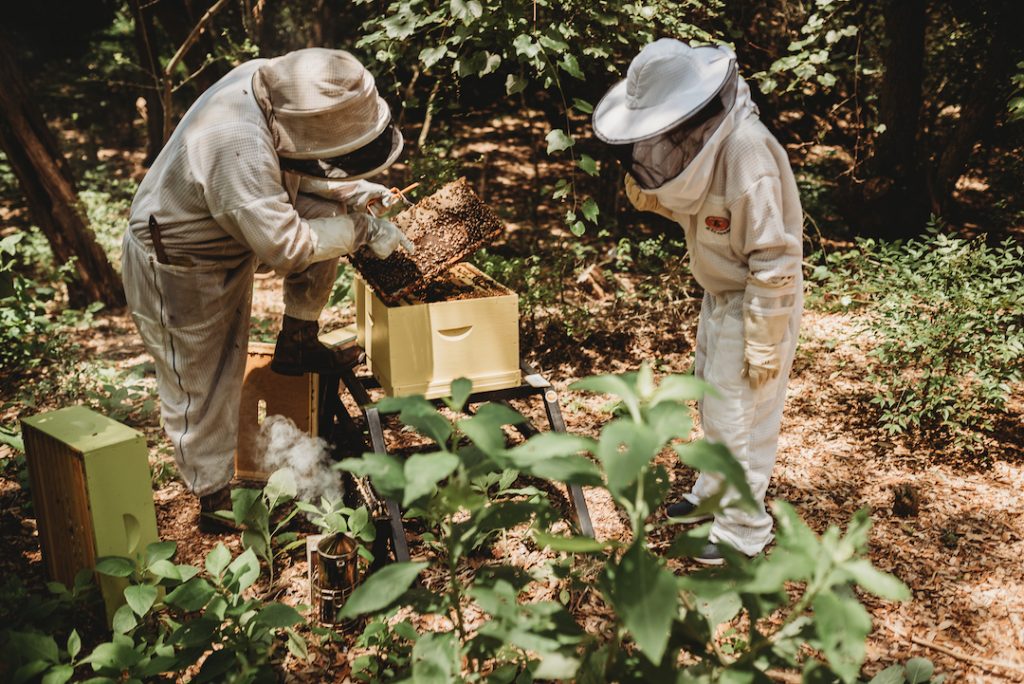
It was such a unique and thoughtful gift. I also had NO idea what to do with them. I reached out to a local bee company for help getting the hive up and buzzing and was surprised to learn that DIY beekeeping isn’t mission impossible. Jason Gamble at BeeWeaver points newbies to Facebook to find beekeeper associations, meetings and experts. They can answer questions, help source supplies, and educate you on raising a bee colony. I also learned it’s especially important to use local support as factors like weather, disease and parasites are hyper-local and regional experts have a pulse on mitigating these issues. Their expertise can also help you maximize the medicinal benefits of honey and pollen!
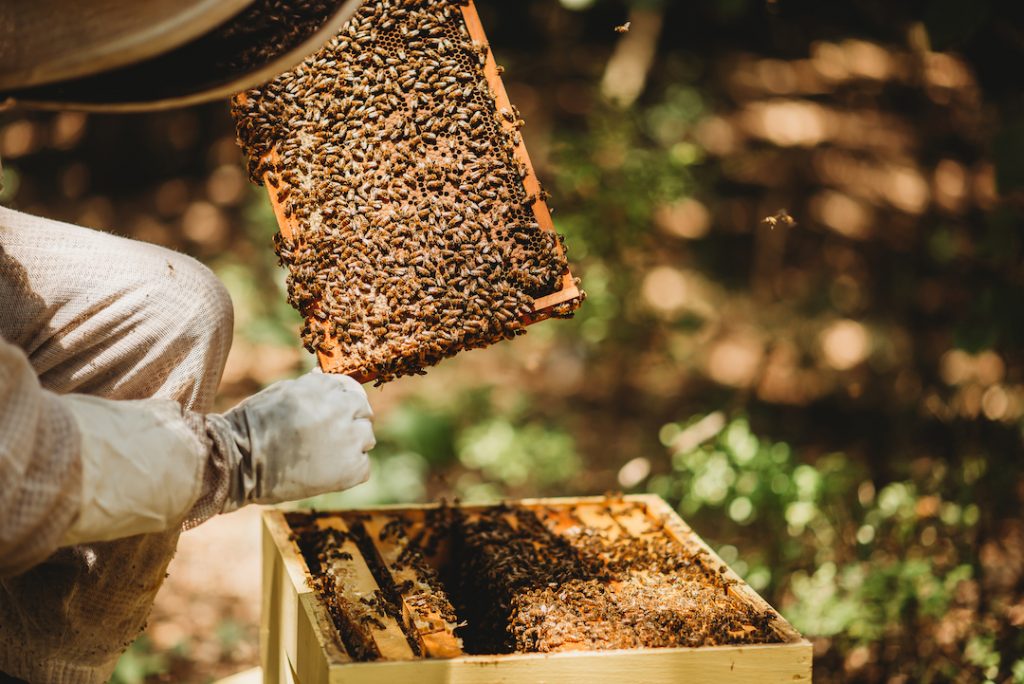
I was a little worried about the kids’ safety so Jason also taught us how to interact with bees in a non-threatening way. The ground rules were pretty simple:
- Establish a safe perimeter around the hive. We placed the hive in a more wild, secluded part of our yard that didn’t risk getting hit by a soccer ball.
- Don’t swat them or make jerky movements. If a bee flies near you, just leave the area.
- Wear light colors around the hive. Bees associate dark clothing with predators like bears.
It’s been nearly two years and we’re still sting-free (fingers crossed!).
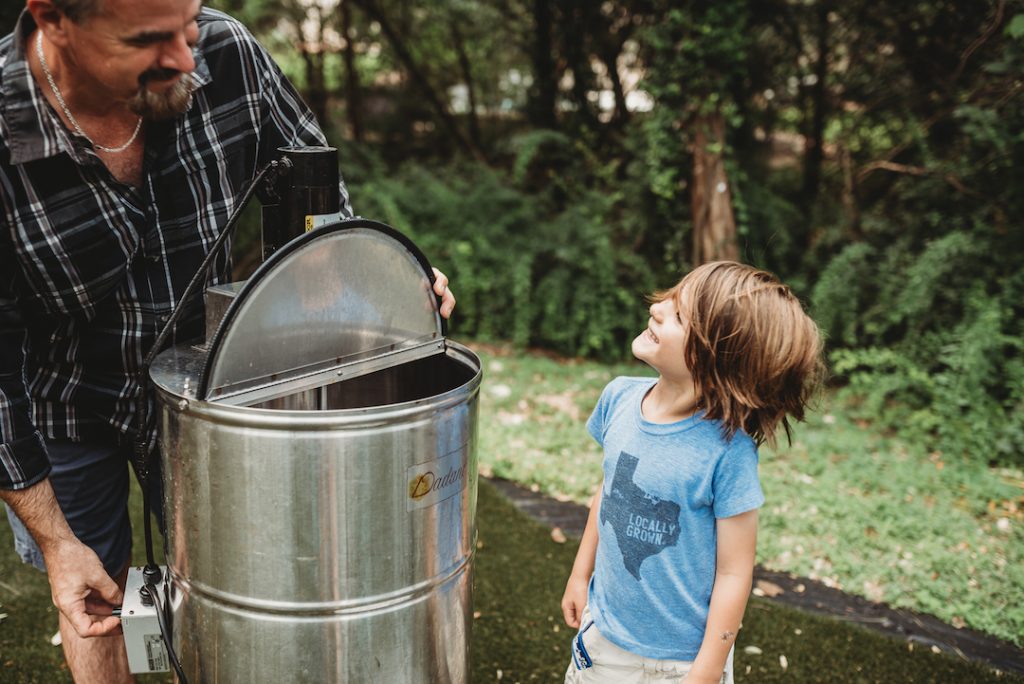
As I’ve learned from having chickens, it takes time and love to get what you want out of it. In the case of bees, you want honey, and it takes an entire year for a home hive to give you the good stuff. Here in Texas, honey is harvested in the summer months, so we just harvested and jarred our first batch. This year we got 2.5 gallons of honey, which is a lot of honey! After eating our fill, we are also using the beeswax to make chapstick and food wraps. I’m also hoping to give friends and family a bee-themed gift box with fresh honey and homemade beeswax balms and candles this Christmas.
I love learning about growing food and raising animals—even the mess and heartbreak (RIP Betty White)—so the hive has been a fun way to teach the kids about how important bees are to the earth. Experts say one out of every three bites of food we eat depends on bees, since they pollinate everything from apples and berries to zucchini, almonds and even coffee and chocolate. These little guys make a big difference in our lives!
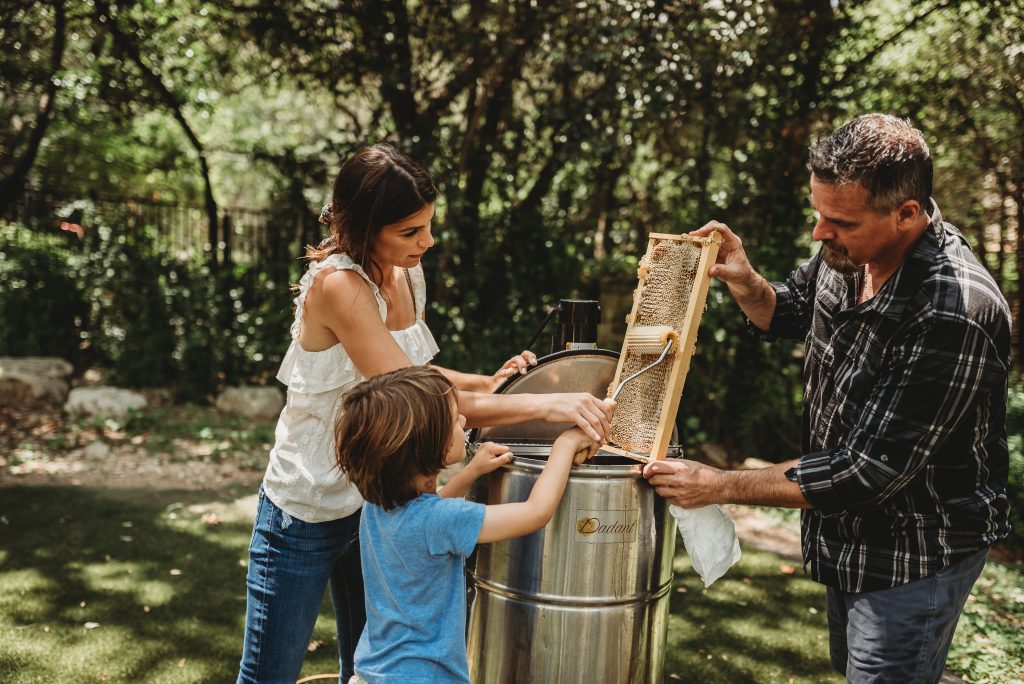
I like to think we are helping out a little bit by raising our own hive. Plus, it makes me so happy when I see our bees buzzing around the garden, enjoying the nectar and pollinating with purpose. I realize not everyone has the time or space to have a beehive—we certainly didn’t before we moved to Austin—but there are still easy ways to help out your local bees:
Create a bee-friendly garden
Bees are fans of native wildflowers, flowering herbs, berries, flowering fruits and vegetables. Select plants with long blooming cycles, so the bees will have plants to come back to, again and again.
Avoid pesticides
Spraying your garden or lawn with synthetic pesticides, fertilizers, and herbicides are all harmful to bees. Instead opt for organic pesticides and only spray at night, when bees are least active.
Plant trees
Bees also love trees. Fruit trees, crape myrtles and maples are just a few of their favorites. So planting trees in your yard or throwing a tree-planting party in your community is beneficial to everyone.
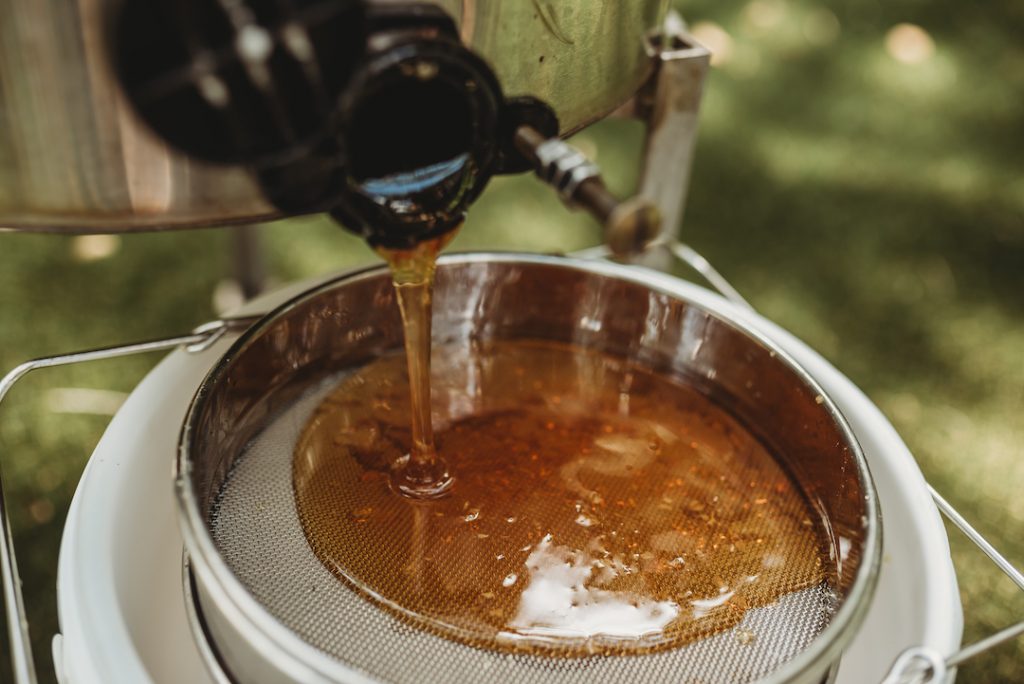
Urban homesteading is still new to me and I’d love to hear any of your stories or tips. Let me know if you’ve ever tried raising bees or any other animals in your backyard in the comments below!


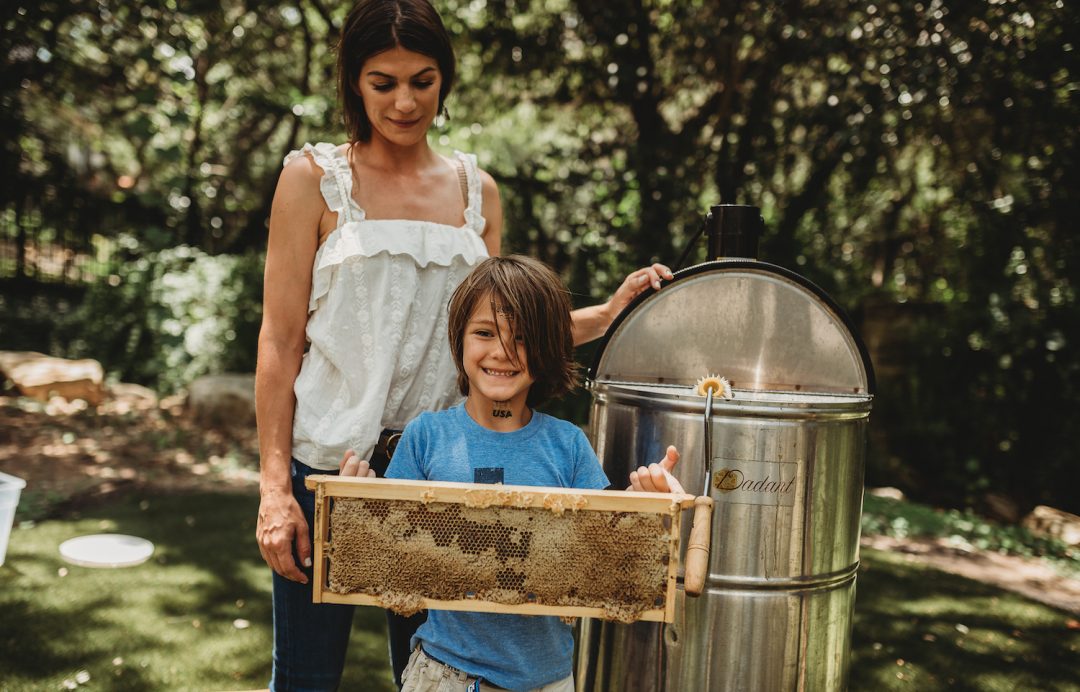
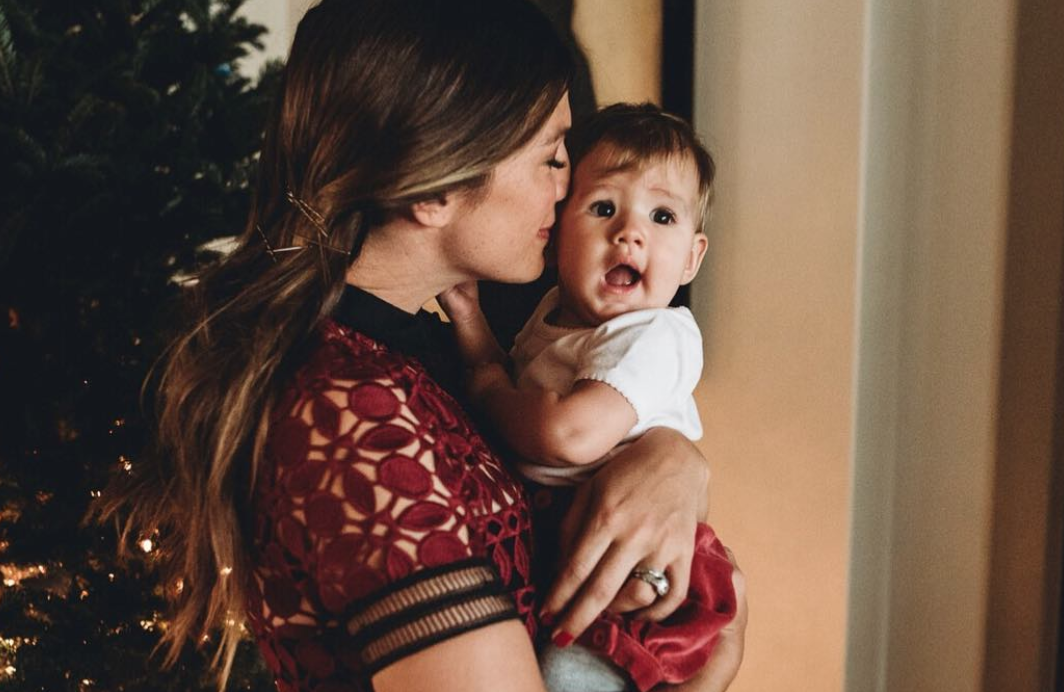
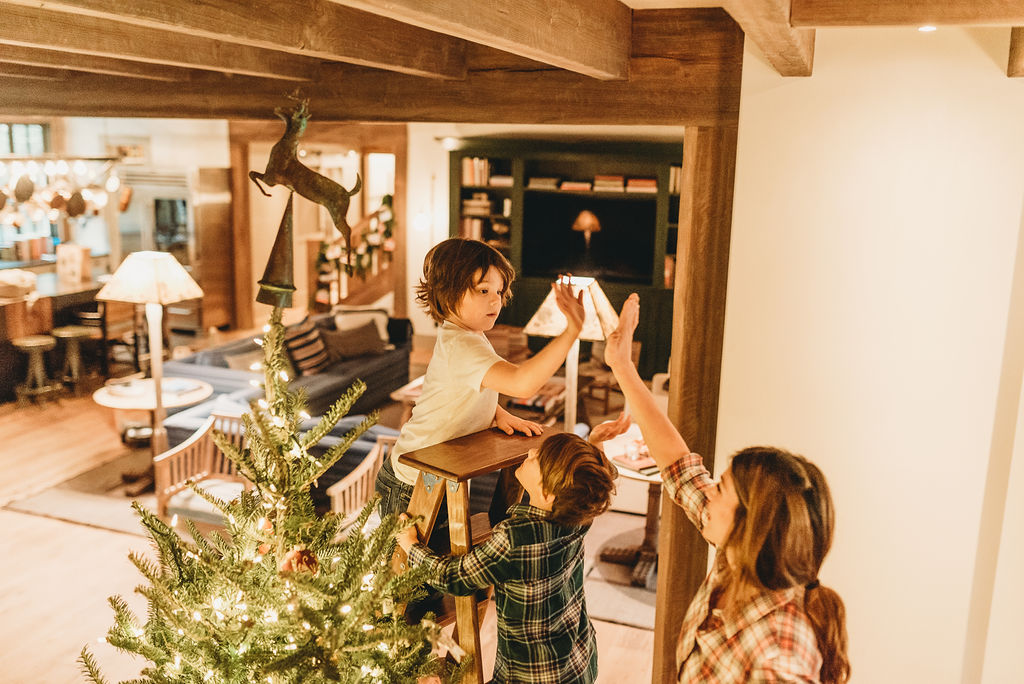
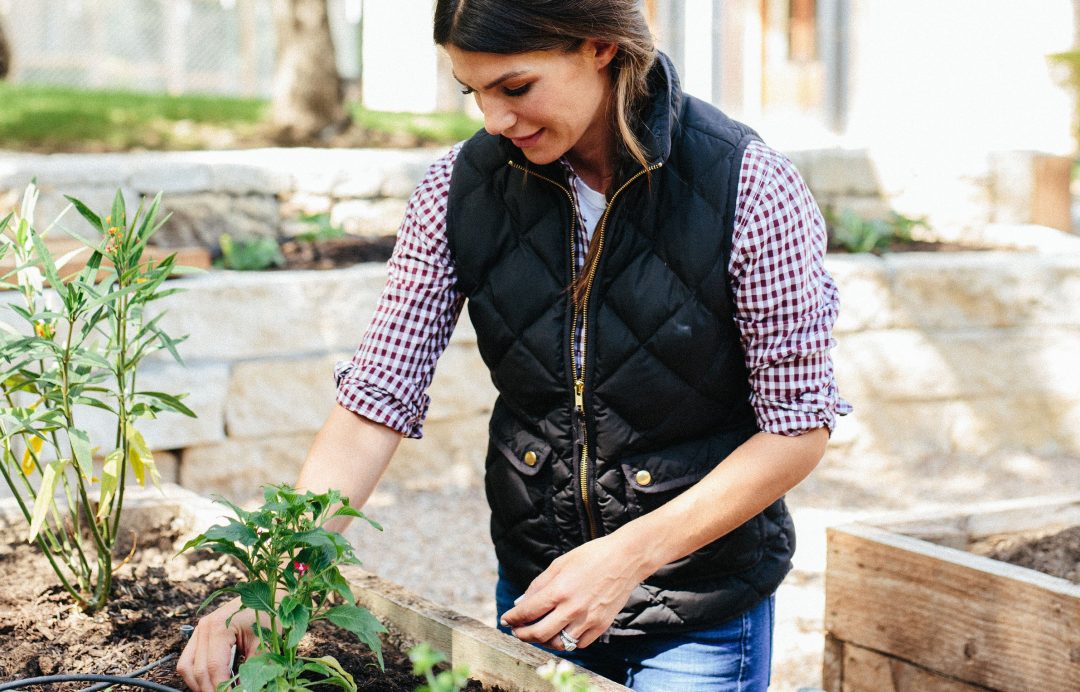
9 Comments
JESSICA LOZANO
Hi Gen!! I love honey and consume it everyday with tea, lemon water or acv drink. I purchase from a local honey company and it has made a world of difference during allergy season for my brother and I. He used to have severe allergies to our mesquite tree. Immediate eye itching, sneezing, stuffed up passing that massive tree daily; However, when he started consuming honey, the next year he had no problems it was like a miracle cure lol. I use it in baking also to replace sugar and it’s wonderful! You are doing such a remarkable job!! You’re raising wonderful kids, have a successful business and taking care of yourself. It’s amazing to me the balance you have among all your responsibilities and projects you take on to help others. You’re truly an inspiration!! Thank you for all the great posts!! Really enjoy the site!! Another great post to read while I’m sipping my honey lemon water 🙂
Jess
Jhenifer
always needed
she helps us and we help her ,I love 💛
Carlachizan
I have a hive since April. They are remarkably little bees the things these little girls can do. How they Communicate ,all the work they do all day. We got chickens so they can clean around the hive for other bugs that can hurt the bee hive. The chickens just started laying eggs. My family are learning a lot and enjoying this way of life.
Paige Shelby
I love this! My family thinks I’m a total nutter for worrying about the bees so much, but they clearly don’t understand how important they are! Could you post more details about what type of hive you have, what your honey collection looks like and maybe a how-to guide on making your own wax food wraps and lip balms?
Rasha
Hi Gen
I really adore what you do with your kids and your capabilities to balance all other responsibilities . You are really an inspiration to any woman. Iam glad that I watched supernatural because it gave me an opportunity to learn a lot from you and your husband .
Rasha
Effie
Hi! I live in the country and we have a wild hive close by. At first we were nervous but they are very tame and I love watching them. We have chickens and turkeys too. I’ve been interested in having a bee hive but haven’t taken that step yet. I love hearing about your garden, animals, and kiddos!
Carrie Wiggins
I love this post! We farm in Nebraska, i too have been intrigued about getting our own hive. We have chickens, ducks, geese, rabbits and pigs, along with our ranch cattle.
Last year honey harvesters knocked on our door to get permission to place some hives on the corner of our alfalfa, we jumped at the chance! I’ve enjoyed taking pics of them visiting the sunflowers in the garden. We got paid with 3 of the prettiest cases of honey I’ve ever seen! I used them for Christmas and it fed our family all year! So, I enjoyed this post! Maybe i CAN get a hive of our own? Thanks for the insight!
Kim Jacobs
We have chickens, and because of them we have no food waste going into the bin. Anything edible goes to the chooks.
Chooks need protein and I came across this simple idea to feed live maggots to chickens that I’m dying to try. All you need is a bucket with a lid (recycled from having had bulk detergent or similar is ideal), a tripod setup to hold the bucket off the ground, some straw, and meat scraps. You drill holes (1/4 inch or so) in the bucket bottom and sides (to let flies in and maggots out), put a layer of straw in the bottom, put in some meat scraps (these will decompose and attract the flies, and give the maggots something to breed and feed in). Put more straw on top. Then put the lid on securely and hang inside the chook pen.
The straw will mask the smell of the meat decomposing but the flies can smell it. As the maggots mature they will fall out the holes, and voila! fresh protein for the chooks!! The will gobble up the maggots as soon as they drop out.
Post pictures if you make one of these!
unecatastrophes
My sister is cultivating bees fpr a couple of years now, but they live in the countryside with lots of space and tons of fruit trees. My neighbour though (big city center life here) is keeping his beehive on his balcony !- and we keep our teeny tiny lawn wild and flowered and un-cut for them. He provides us with amazing honey in return and introduced us to different scents an tastes and ways of producing it (pressing or centrifuge, sommer or spring blossom e.g.) I never new how many varieties there are and how they really differ in taste!